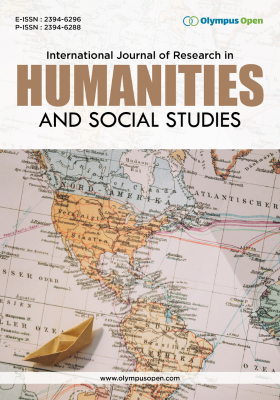The Slant Social “Diagnoses”: Media Influence on Public Opinions in BrexLit Middle England
DOI:
https://doi.org/10.62557/2394-6296.120202Keywords:
Jonathan Coe, Middle England, Brexit, BrexLit, Media InfluenceAbstract
In Jonathan Coe’s highly-received BrexLit Middle England (2018), deep-rooted social divisions are revealed through the conflicts between individual characters who try to navigate opposing viewpoints in the face of the Brexit referendum. Previous critics have approached these divisions from diverse angles, with some touching upon the effect of media. However, they often oversimplify the influence of media on public opinions, neglecting the complex, heterogeneous nature of the contemporary media landscape and failing to examine how characters’ conscious media choices within a pluralist media environment contribute to their divergent perceptions of British society and Brexit attitudes. Applying Michel Foucault’s medical institution model as an analogy for media systems, this study aims to develop a comprehensive analysis of media influence on three social groups within the novel. The analysis reveals that different social groups in Middle England have distinct media choices, which construct their respective knowledge systems, leading to their slanted “diagnoses” of societal issues. These biased “diagnoses” ultimately lead to different Brexit referendum choices. Meanwhile, the media’s polarized portrayal and adversarial presentation of the “Leave” and “Remain” options intensify the sense of opposition, obstructing meaningful public discussion and dialogue, thereby exacerbating the divisions in the public. This paper reveals the media’s latent power in controlling social perceptions on Brexit issues and calls for critical reflection on the role of media in political discussions in the public sphere.
Downloads
Downloads
Published
Issue
Section
License
Copyright (c) 2025 Author(s)

This work is licensed under a Creative Commons Attribution-NonCommercial 4.0 International License.

